Fiction
Fiction
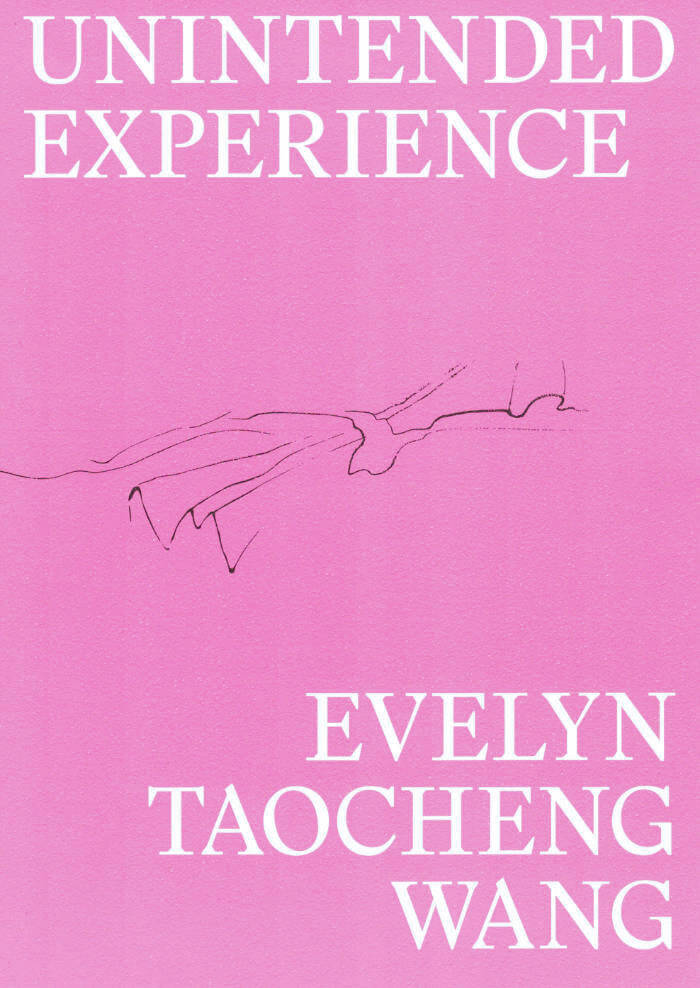
Unintended Experience. A job in Amsterdam
A new version of After 8 Books' first publication and bestseller: Evelyn’s adventures as a transgender masseuse in Amsterdam, back when she was a young artist, supporting herself by working in a massage salon. The texts are witty, sharp and thoughtful, reflecting a very specific community of friends and coworkers and its counterpart, the male clientele. The drawings illustrating those texts are dreamlike watercolors, perfect companions to Unintended Experience’s diaristic journey.
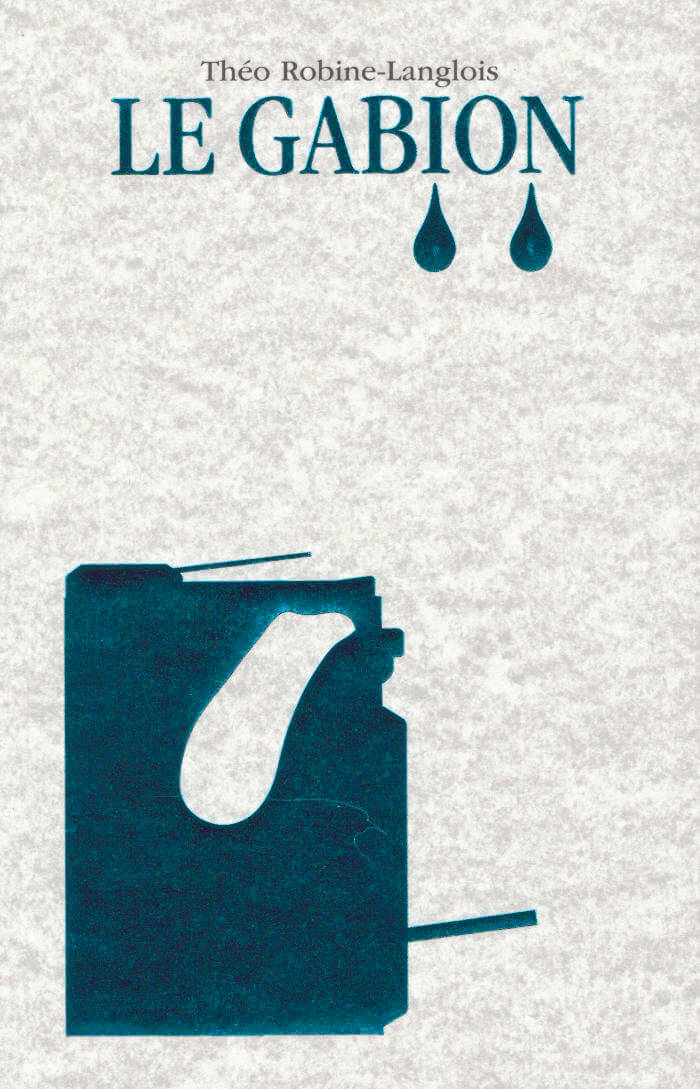
Le Gabion
Au départ, une simple anecdote: un gabion de chasse typique des marais normands se détache de son ancrage pour dériver dans l’Océan Atlantique, avec des chasseurs incapables de nager à son bord. Théo Robine-Langlois transpose cette histoire à une échelle interstellaire: le Gabion, vaisseau spatial chasseur d’astéroïdes conçu pour être attaché à la Terre, dérive dans l’espace. À la suite d’Anton, on traverse les différentes communautés qui peuplent le bâtiment, monde en soi où se côtoient et s’affrontent des mœurs, des modèles de société, et surtout des formes de langage. Anton, lui, tente d’échapper à celui qui prétend régir le vaisseau, en récoltant des photocopies éparpillées dans ses méandres, jusqu’à son mystérieux cœur...
Empruntant au roman d’apprentissage autant qu’à la science-fiction, Le Gabion est aussi une chanson de geste: une odyssée symbolique où la langue et la figure de l’auteur sont traités de manière expérimentale, comme faisant partie du récit lui-même. Les langues que parlent les personnages contaminent le livre, qui se construit comme un montage où poésie, philosophie, histoire littéraire, hip hop et échanges SMS se rejoignent. En parcourant le Gabion, les lecteur.trice.s rencontrent différents rapports au langage, qui se concrétisent à la fin du livre par l’élection d’un maire de banlieue parisienne.
Le Gabion poursuit le travail entamé par Théo Robine-Langlois dans son premier livre, [...], où le subterfuge typographique des points de suspension entre crochets signifiait à la fois l’existence de trous dans la langue, d’échappatoires dans l’imaginaire, et de nuages dans le ciel. Dans Le Gabion, on peut se cacher dans un paragraphe, lire entre les lignes d’un manuel de photocopieuse, se battre avec des missiles-poèmes, rencontrer des enfants sanguinaires et des sororités féministes. On traverse également plusieurs siècles de poésie française, des troubadours à Henri Chopin ou Hélène Bessette.
Texte en Français

De Scylla en Charybde
De Scylla en Charybde is a poetic novel wich follows the lives of five mutants in a blurry future. The narration is a pretext to play with the sounds of words, the plasticity of a futurist poetic language.

Weird Fucks
A brilliant novella from a legendary figure in American fiction.
A young woman drifts through dimly lit bars and rented rooms, reporting from the erogenous zones of New York and Europe. Encountering increasingly bizarre sexual situations, she turns her curious, comic, and fierce eye onto the contemporary world of sex and desire.
The men of this world evade and simper, they prey, preen, and fall hopelessly in love. In the narrator’s deadpan portraits, we see young women indulging their freedom through hope and disappointment, and young men wearing various guises of masculinity.
This novella surprises with unlikely fucks, disturbing fucks, outlandish fucks, and some truly weird fucks – all written with the smart, elegant, and tough style which could only be that of Lynne Tillman.

The Letters of Mina Harker
In Dodie Bellamy's imagined "sequel" to Bram Stoker's fin de siècle masterpiece Dracula, Van Helsing's plain Jane secretarial adjunct, Mina Harker, is recast as a sexual, independent woman living in San Francisco in the 1980s. The vampire Mina Harker, who possesses the body of author Dodie Bellamy, confesses the most intimate details of her relationships with four vastly different men through past letters. Simultaneously, a plague is let loose in San Francisco-the plague of AIDS.
Bigger-than-life, half goddess, half Bette Davis, Mina sends letter after letter to friends and co-conspirators, holding her reader captive through a display of illusion and longing. Juggling quivering vulnerability on one hand and gossip on the other, Mina spoofs and consumes and spews back up demented reembodiments of trash media and high theory alike. It's all fodder for her ravenous libido and "a messy ambiguous place where pathology meets pleasure." Sensuous and captivating, The Letters of Mina Harker describes one woman's struggles finding the right words to explain her desires and fears without confining herself to one identity.
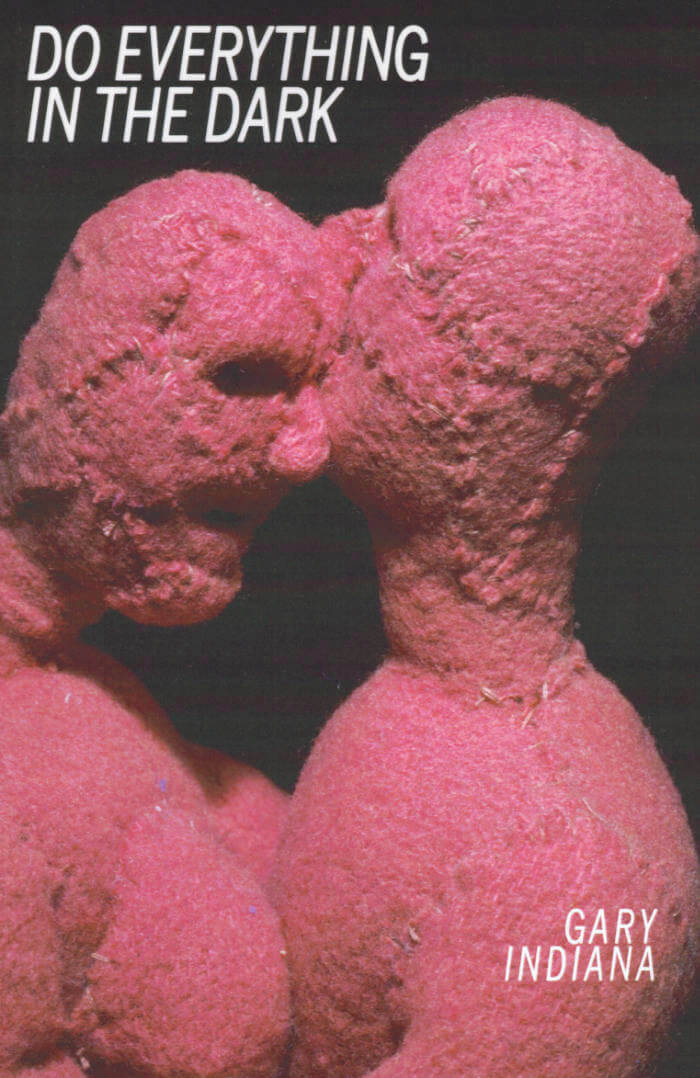
Do Everything in the Dark
Faced with photos of a once-tumultuous New York art world, the narrator's mind in this scathing, darkly funny novel begins to erupt. Memories jostle for center stage, just as those that they are about always did. These brilliant but broken survivors of the '80s and '90s have now reached the brink of middle age and are facing the challenge of continuing to feel authentic.
Luminous with imagery, cackling with bitter humor, this roman à clef spares no one. It's a canny portrait of one era's vaporization, and a study of the perpetual need that some of us feel to reconstruct ourselves-atom by atom.
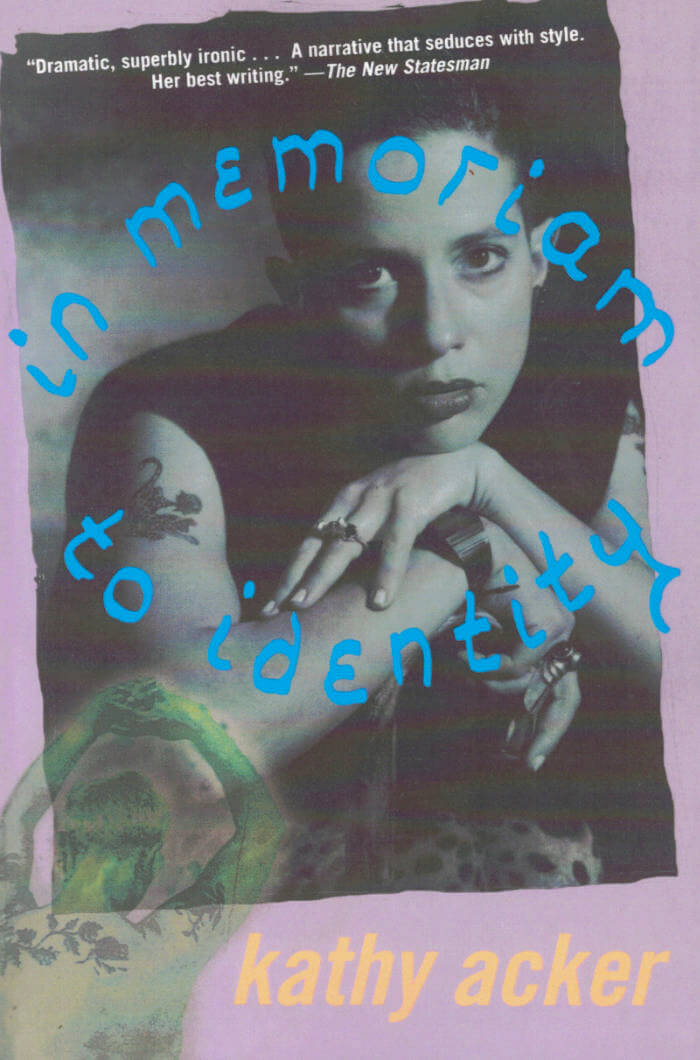
In Memoriam to Identity
In this characteristically sexy, daring, and hyperliterate novel, Kathy Acker interweaves the stories of three characters who share the same tragic flaw: a predilection for doomed, obsessive love. Rimbaud, the delinquent symbolist prodigy, is deserted by his lover Verlaine time and time again. Airplane takes a job dancing at Fun City, the seventh tier of the sex industry, in order to support her good-for-nothing boyfriend. And Capitol feels alive only when she's having sex with her brother, Quentin. In Memoriam to Identity is at once a revelatory addition to, and an irreverent critique of, the literature of decadence and self-destruction.

The Works of Guillaume Dustan (Vol. 1)
Guillaume Dustan' first three novels, published in French between 1996 and 1998, describing the narrator's sexual odyssey through a Paris still haunted by AIDS.
This volume collects a suite of three wildly entertaining and trailblazing short novels by the legendary French anti-assimilationist LGBTQ+ writer Guillaume Dustan. Published sequentially in France between 1996 and 1998, the three novels are exuberant and deliberately affectless accounts of the narrator's sexual odyssey through a Parisian club and bath scene still haunted by AIDS.
In My Room (1996) takes place almost entirely in the narrator's bedroom. The middle volume, I'm Going Out Tonight (1997) finds him venturing out onto the gay scene in one long night. Finally, in Stronger Than Me(1998) the narrator reflects on his early life, which coincided with the appearance and spread of the AIDS virus in France.
A close contemporary of Dennis Cooper, Brett Easton Ellis, Kevin Killian, and Gary Indiana, Guillaume Dustan's deadpan autofiction is at once satirical and intimate, and completely contemporary.
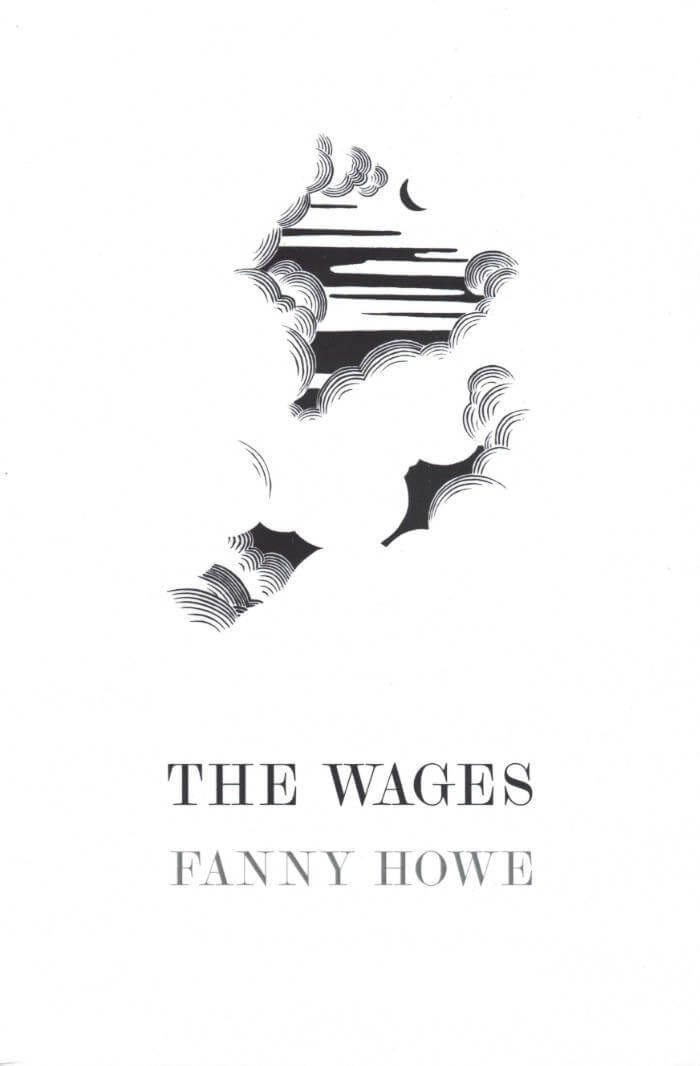
The Wages
Born amidst tragedy and implacable hatreds, the young Peter McCutcheon is denied his freedom, his birthright, and the fruits of his labors by cruel masters, and by a society and history which denies the truth.
THE WAGES is a monument to individual courage and to the ongoing injustices caused by the suppression of memories and the oppression of people. It is also a powerful document of America's entanglement in slavery and vicious myths of race. The wages of sin, according to the Bible, is death. Fanny Howe's novel demonstrates that the wages of hate are pain, and a cost not always borne by the perpetrator, or even the current generation.

Paul Takes the Form of a Mortal Girl
It's 1993 and Paul Polydoris tends bar at the only gay club in a university town thrumming with politics and partying. He studies queer theory, has a dyke best friend, makes zines, and is a flaneur with a rich dating life. But Paul's also got a secret: he's a shapeshifter. Oscillating wildly from Riot Grrrl to leather cub, Paul transforms his body and his gender at will as he crosses the country; a journey and adventure through the deep queer archives of struggle and pleasure. Paul Takes the Form of a Mortal Girl is a riotous, razor-sharp bildungsroman whose hero/ine wends his/her way through a world gutted by loss, pulsing with music, and opening into an array of intimacy and connections.
"HOT" (Maggie Nelson) - "TIGHT" (Eileen Myles) - "DEEP" (Michelle Tea)
Paul Takes the Form of a Mortal Girl is a riotous, razor-sharp bildungsroman whose hero/ine wends his/her way through a world gutted by loss, pulsing with music, and opening into an array of intimacy and connections.
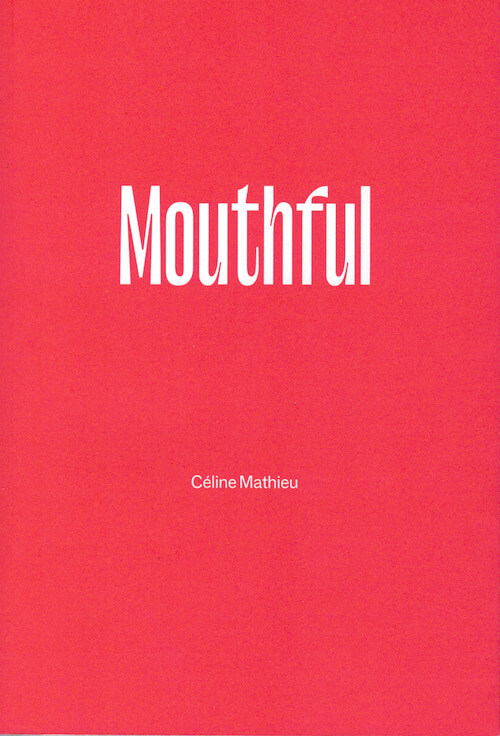
Mouthful
"She has fallen forward again, resting there like a reptile basking in the January sun. Where she was, in her corner, temperatures rose up to 28 degrees Celsuis. Her dry skin darkened, drinking the light."
In 2020, CMMC –Céline Mathieu and Myrthe van der Mark– were invited by organisers NICC Lodgers to perform at M HKA in Antwerp in response to art subsidy cuts in Flanders. Their contribution, The Writing Performance, was an attempt to write a novella each in three days, during the museum’s opening hours and in full sight of visitors. Throughout The Writing Performance, CMMC subsisted on water and sugar.
Published 2021.

At the Full and Change of the Moon
Written with lyrical fire in a chorus of vividly rendered voices, Dionne Brand's second novel is an epic of the African diaspora across the globe.
It begins in 1824 on Trinidad, where Marie-Ursule, queen of a secret slave society called the Sans Peur Regiment, plots a mass suicide. The end of the Sans Peur is also the beginning of a new world, for Marie-Ursule cannot kill her young daughter, Bola, who escapes to live free and bear a dynasty of descendants who spill out across the Caribbean, North America, and Europe.
Haunted by a legacy of passion and oppression, the children of Bola pass through two world wars and into the confusion, estrangement, and violence of the late twentieth century.
"[Brand has] a lush and exuberant style that may put some readers in mind of Toni Morrison or Edwidge Danticat." — William Ferguson, The New York Times Book Review
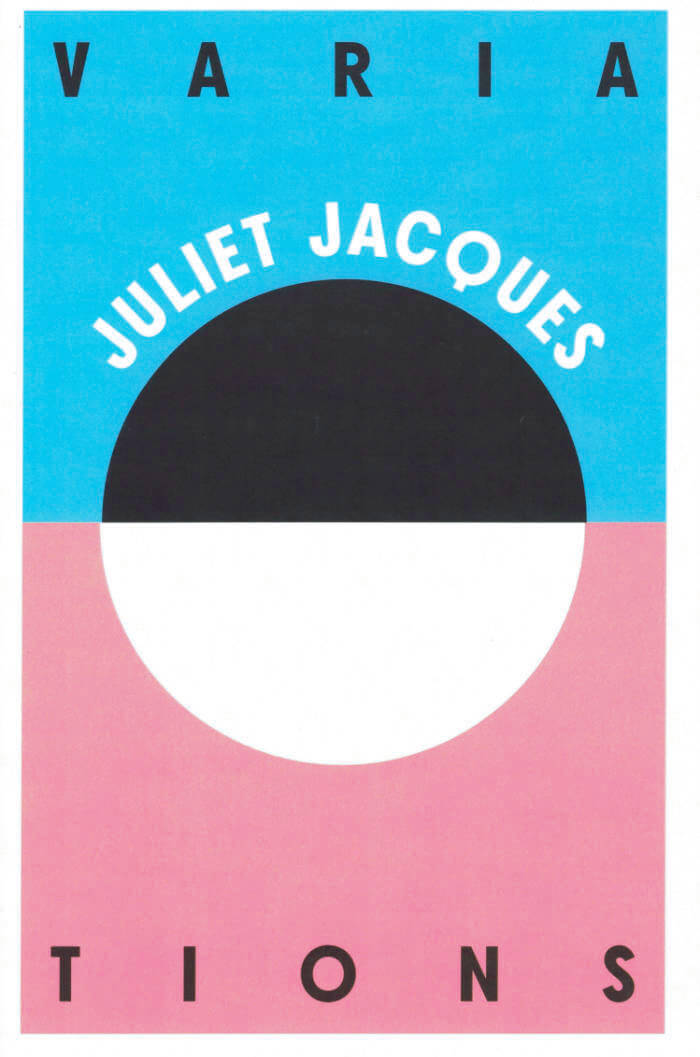
Variations
Variations is the debut short story collection from one of Britain’s most compelling voices, Juliet Jacques. Using fiction inspired by found material and real-life events, Variations explores the history of transgender Britain with lyrical, acerbic wit.
Variations travels from Oscar Wilde’s London to austerity-era Belfast via inter-war Cardiff, a drag bar in Liverpool just after the decriminalisation of homosexuality, Manchester’s protests against Clause 28, and Brighton in the 2000s. Through diary entries of an illicit love affair, an oral history of a contemporary political collective; a 1920s academic paper to a 1990s film script; a 1950s memoir to a series of 2014 blog posts, Jacques rewrites and reinvigorates a history so often relegated to stale police records and sensationalist news headlines.
Innovative and fresh, Variations is a bold and beautiful book of stories unheard; until now.

Since I Laid My Burden Down
A riotous, hilarious, and heart-breaking cult novel about growing up black, queer, and punk.
When DeShawn hears news of his uncle's death, his riotous big-city life in San Francisco is abruptly put on hold while he travels back to his Alabama hometown for the funeral.
While there, he’s hit by flashbacks of growing up queer and black in the ‘80s South, of a youth filled with strong women, bewildered boys, and messed up queers. Wading through prickly reminders of his childhood, of sweltering Sundays, church, family, and the men he once knew, DeShawn reconnects with his old self and the ghosts of his past.
A raw, dirty, hilarious, and heartbreaking novel about the experiences that shape us, Since I Laid My Burden Down asks the intimate question: who deserves love?
Brontez Purnell is a writer, musician, dancer, filmmaker, and performance artist. He is the author of a graphic novel, a novella, a children's book, and the novel Since I Laid My Burden Down. The recipient of a 2018 Whiting Writers' Award for Fiction, he was named one of the 32 Black Male Writers of Our Time by The New York Times Magazine. Purnell is also the frontman for the band the Younger Lovers, a co-founder of the experimental dance group the Brontez Purnell Dance Company, the creator of the renowned cult zine Fag School, and the director of several short films, music videos, and the documentary Unstoppable Feat: The Dances of Ed Mock. He lives in Oakland, California.

100 Boyfriends (UK edition)
Transgressive, foulmouthed, and wildly funny, Brontez Purnell's 100 Boyfriends is a filthy, unforgettable, and brutally profound ode to queer love in its most messy of variations. From one-night stands to recurring lovers, Purnell's characters sleep with their co-worker's husbands, expose themselves to racist neighbours, date Satanists, and drink their way out of trouble, all the while fighting - and often losing - the urge to self-sabotage.
A horny, punk love song full of imperfect intimacies, 100 Boyfriends takes readers on a riotous journey through dirty warehouses and gentrified bars, from dysfunctional houseshares to desolate farming towns in Alabama. Drawing us into a community of glorious misfits living on the margins of a white supremacist, heteronormative society, iconoclastic storyteller Brontez Purnell gives us an uncompromising vision of desire, desperation, race, loneliness, and queerness that will devastate as much as it entertains.

Near to the Wild Heart
Near to the Wild Heart, published in Rio de Janeiro in 1943, introduced Brazil to what one writer called "Hurricane Clarice" a twenty-three-year-old girl who wrote her first book in a tiny rented room and then baptized it with a title taken from Joyce: "He was alone, unheeded, near to the wild heart of life."
Narrative epiphanies and interior monologue frame the life of Joana, from her middle-class childhood through her unhappy marriage and its dissolution to transcendence, when she proclaims: "I shall arise as strong and comely as a young colt."
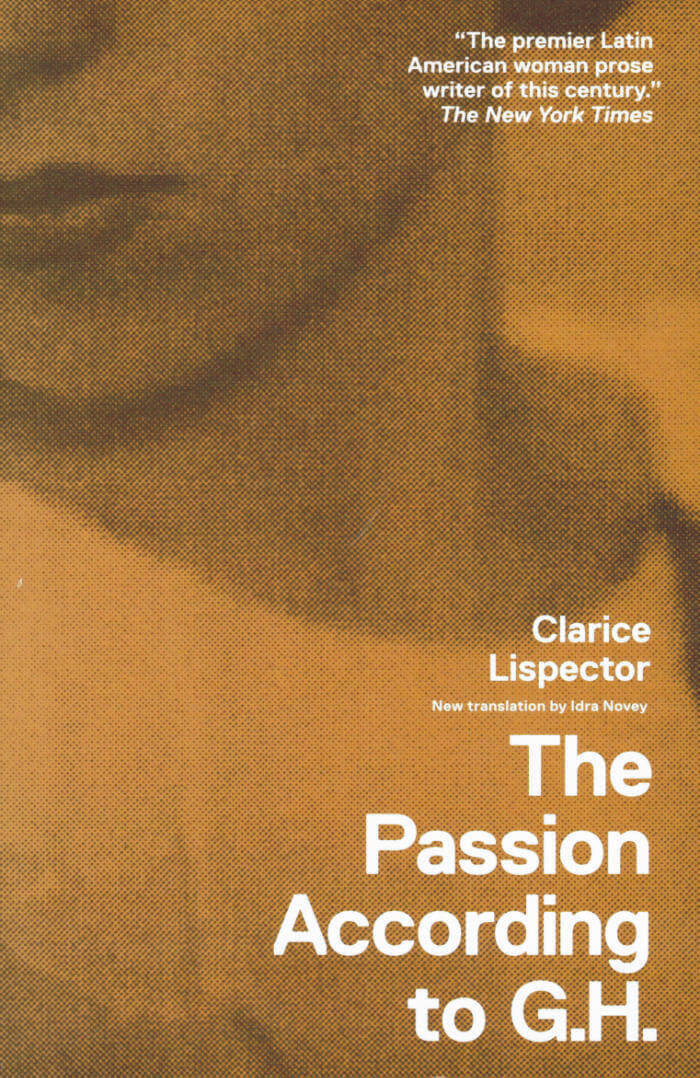
The Passion According to G.H.
The Passion According to G.H., Clarice Lispector's mystical novel of 1964, concerns a well-to-do Rio sculptress, G.H., who enters her maid's room, sees a cockroach crawling out of the wardrobe, and, panicking, slams the door, crushing the cockroach, and then watches it die. At the end of the novel, at the height of a spiritual crisis, comes the most famous and most genuinely shocking scene in Brazilian literature...
Lispector wrote that of all her works this novel was the one that "best corresponded to her demands as a writer."
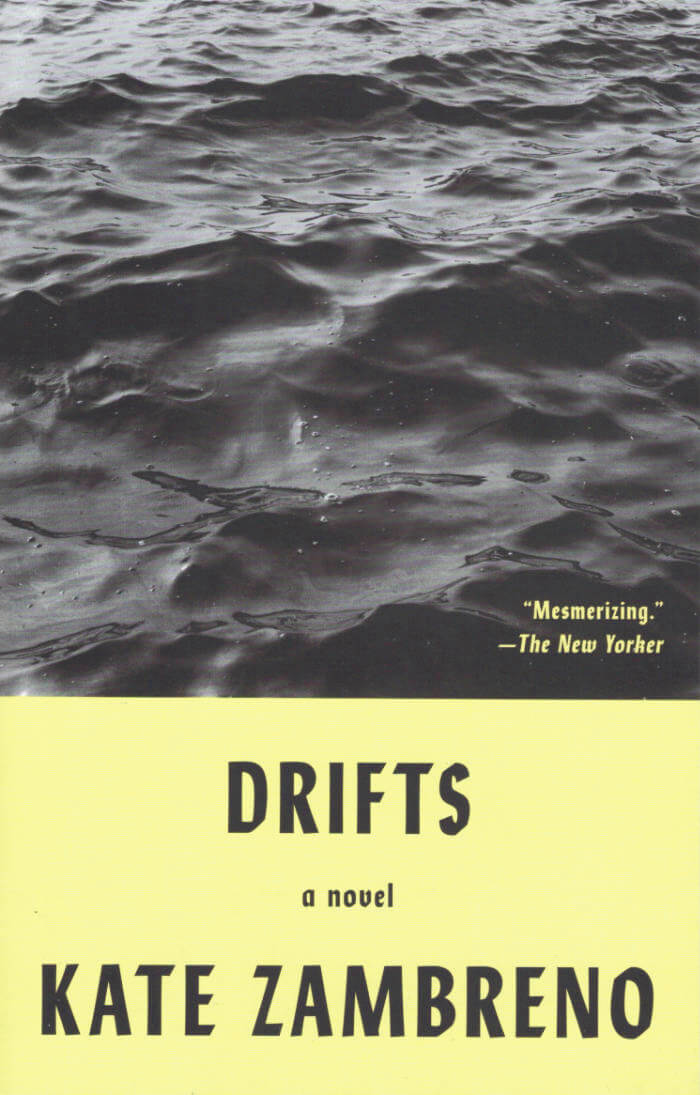
Drifts (paperback)
Haunting and compulsively readable, Drifts is an intimate portrait of reading, writing, and creative obsession. At work on a novel that is overdue, spending long days walking neighborhood streets with her restless terrier, corresponding ardently with fellow writers, the narrator grows obsessed with the challenge of writing the present tense, of capturing time itself. Entranced by the work of Rainer Maria Rilke, Albrecht Dürer, Chantal Akerman, and others, she photographs the residents and strays of her neighborhood, haunts bookstores and galleries, and records her thoughts in a yellow notebook that soon subsumes her work on the novel. As winter closes in, a series of disturbances—the appearances and disappearances of enigmatic figures, the burglary of her apartment—leaves her distracted and uncertain . . . until an intense and tender disruption changes everything.
A story of artistic ambition, personal crisis, and the possibilities and failures of literature, Drifts is the work of an exhilarating and vital writer.
Kate Zambreno is the author of several acclaimed books including Screen Tests, Heroines, and Green Girl. Her writing has appeared in The Paris Review, VQR, and elsewhere. She teaches in the writing programs at Columbia University and Sarah Lawrence College.
Published 2021

Last Utopia
The bilingual book (NL-EN) contains one chapter of her recent novel Exces (Prometheus, 2021), which she has been working on during her stay at the academy. Set in the rave scene of 90s' Berlin, Last Utopia sketches the emotional landscape of an era that was supposed to be liberated, a time when the future was ostentatiously hailed. Yet in between the markers of optimism and progress, the first cracks announcing the permanent crises of today are revealed. Understanding techno as narrative device, this short novella - which can be read independently from the novel - traces echoes of utopian imaginary.
Persis Bekkering is a sophisticated maker of scenes, her prose is strongly physical and immersive. In her work, human relations are scrutinized and exposed in its ambiguity. In 2018 she published her first novel, Een heldenleven (Life of a Hero) with Prometheus, which was shortlisted for the ANV Debut Prize. She writes essays, art - and literary criticism and columns, for Mister Motley, NRC Handelsblad and other publications. An excerpt of Last Utopia was used as libretto for Stine Janvin and Ula Sickle's concert performance Echoic Choir, which premiered at the Wiener Festwochen.

Vernon Subutex 3
As storm clouds gather, portending a final reckoning, ersatz rave-cult leader Vernon Subutex decides to return to Paris. Even if it means leaving behind his disciples. He has to. He’s got a dentist’s appointment.
Back in the city, he learns that an old friend from his days homeless on the Paris streets has died and left him half of a lottery win. But when Vernon returns to his commune with news of this windfall, it’s not long before his disciples turn on each other. Such good fortune does not accord with the principles Vernon has handed down.
Meanwhile, the monstrous film producer Laurent Dopalet is determined to make Aïcha and Céleste pay for their attack on him, whatever it takes and whoever gets hurt. And, before long, the whole of Paris will be reeling in the wake of the terrorist atrocities of 2015 and 2016, and all the characters in this kaleidoscopic portrait of a city and era will be forced to confront one another one last time. In the wake of all this chaos and hate, the question will rise again: After all he’s been through, who is Vernon Subutex? And the answer: He is the future.
Virginie Despentes’s epochal trilogy ends with Vernon Subutex 3—in fire, blood, and even forgiveness. But not everyone will survive to see the dawning of the golden age of Subutex.
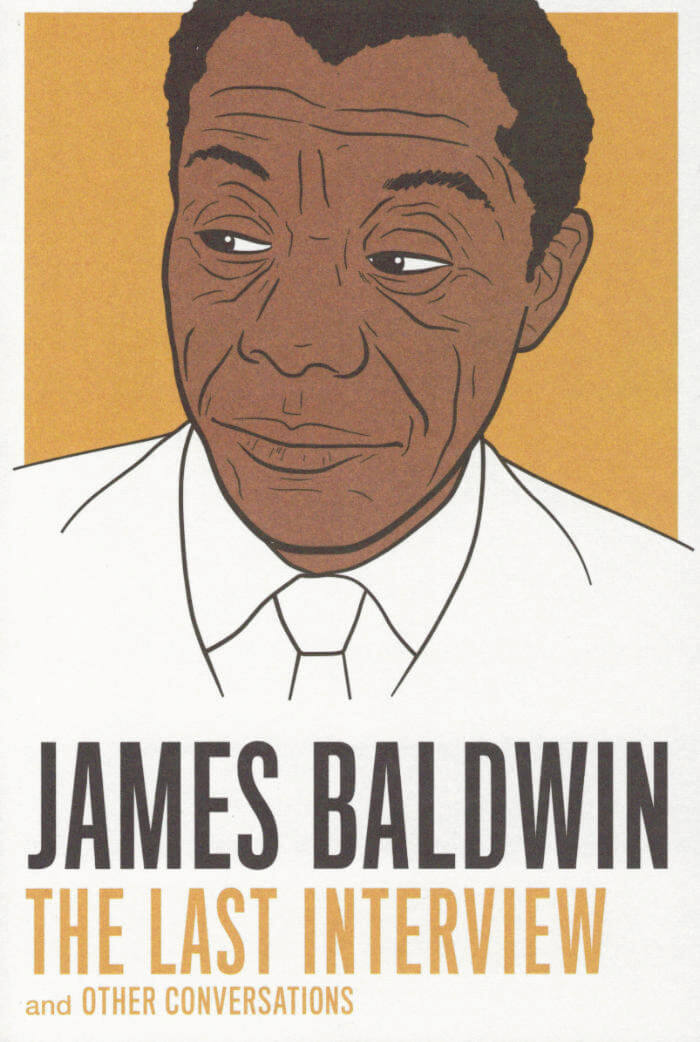
James Baldwin: The Last Interview: And Other Conversations
Never before available, the unexpurgated last interview with James Baldwin.
“I was not born to be what someone said I was. I was not born to be defined by someone else, but by myself, and myself only.” When, in the fall of 1987, the poet Quincy Troupe traveled to the south of France to interview James Baldwin, Baldwin’s brother David told him to ask Baldwin about everything—Baldwin was critically ill and David knew that this might be the writer’s last chance to speak at length about his life and work.
The result is one of the most eloquent and revelatory interviews of Baldwin’s career, a conversation that ranges widely over such topics as his childhood in Harlem, his close friendship with Miles Davis, his relationship with writers like Toni Morrison and Richard Wright, his years in France, and his ever-incisive thoughts on the history of race relations and the African-American experience.
Also collected here are significant interviews from other moments in Baldwin’s life, including an in-depth interview conducted by Studs Terkel shortly after the publication of Nobody Knows My Name. These interviews showcase, above all, Baldwin’s fearlessness and integrity as a writer, thinker, and individual, as well as the profound struggles he faced along the way.
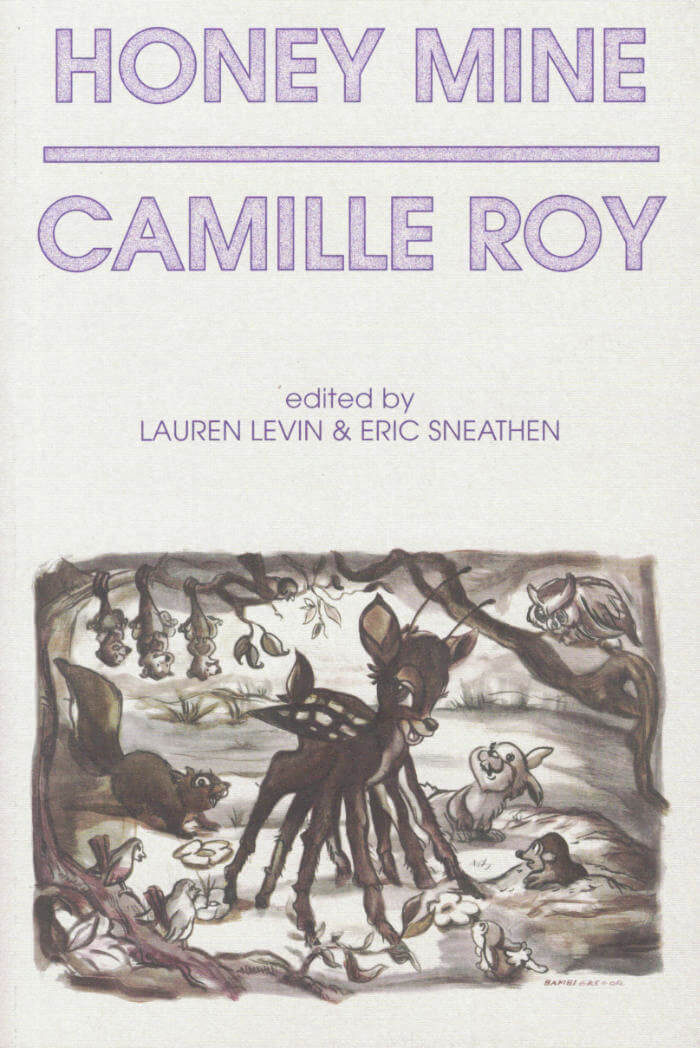
Honey Mine: Collected Stories
Honey Mine unfolds as both excavation and romp, an adventure story that ushers readers into a lesbian writer's coming of age through disorienting, unsparing, and exhilarating encounters with sex, gender, and distinctly American realities of race and class. From childhood in Chicago's South Side to youth in the lesbian underground, Roy's politics find joyful and transgressive expression in the liberatory potential of subculture. Find here, in these new, uncollected and out-of-print fictions by a master of New Narrative, a record of survival and thriving under conditions of danger.

Sterling Karat Gold
Sterling is arrested one morning without having done anything wrong. Plunged into a terrifying and nonsensical world, Sterling – with the help of their three best friends – must defy bullfighters, football players and spaceships in order to exonerate themselves and to hold the powers that be to account.
Sterling Karat Gold is Kafka’s The Trial written for the era of gaslighting – a surreal inquiry into the real effects of state violence on gender-nonconforming, working-class and black bodies.
Following the Goldsmiths Prize–nominated We Are Made of Diamond Stuff, Isabel Waidner’s latest novel proposes community, inventiveness and the stubborn refusal to lie low as antidotes against marginalisation and towards better futures.

The Waterfront Journals
A visceral and carnivalesque mosaic of life at the fringes.
The Waterfront Journals is a road trip through the sensuous, perilous landscape of alternative America—a series of fictional monologues that ventriloquise the real people Wojnarowicz met on his travels while he was sleeping rough.
We meet these hustlers, runaways and dreamers in unassuming locations—in truck stops, bus stations and parks. Their stories are disturbing, often shocking; but they’re told with an honesty and a hallucinatory intensity that simply demands to be heard.
Published for the first time in the UK, this electrifying collection confirms that David Wojnarowicz was not only one of millennial America’s most necessary and visionary artists, but also among its most humane and urgent literary chroniclers.
Praise for The Waterfront Journals
A totally crucial book by one of the 20th century’s greatest artists and writers.—Maggie Nelson
Wojnarowicz proves that the difference between the rules of poverty and those of a dream is nothing more than smoke. The termination point of American life examined by the terminal American artist.—Jarett Kobek